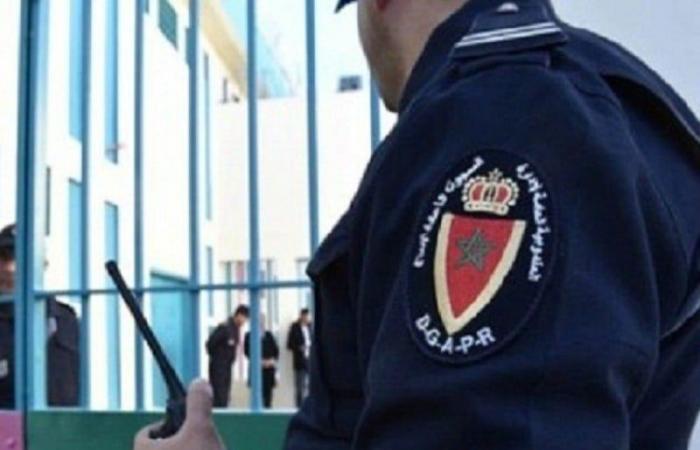Criminal policy constitutes the fundamental lever in resolving the complex challenge of prison overpopulation, affirmed the Minister Delegate to the Head of Government in charge of Relations with Parliament and government spokesperson, Mustapha Baitas.
During the weekly session of oral questions in the House of Councilors, Baitas a stressed that the colossal responsibilities incumbent on prison administration employees, as well as their fundamental role in society, make it essential to improve working and living conditions.
According to the minister, these initiatives aim not only to boost the motivation of agents, but also to encourage them to actively invest in the mission of rehabilitation of prisoners and the professional management of penitentiary establishments. It is in this sense that Decree No. 2.24.1096 adopted by the government on December 19, 2024 presents itself as a real turning point, profoundly modifying the status of civil servants in this sector.
The official affirmed that these measures include an exhaustive review of the names and hierarchical structure of executives and ranks within the prison administration. According to the new statutory provisions, the administrative structure is now structured around the “prison supervisor framework”, broken down into four grades, namely deputy prison guard second class, deputy first class, principal second class, and principal first class.
Baitas clarified that this hierarchy also includes the “head of penitentiary cadre”, which extends through four levels, including deputy second class, deputy first class, emeritus second class, and emeritus first class. Furthermore, the category “general controller framework” is defined by a single grade of general controller, subdivided into four levels (first, second, third, and fourth degrees), with the addition of two additional levels within the general controller framework. head of penitentiaries.
The minister also addressed the review of the grade progression system. Demanding criteria of merit, performance and professional value have been established to rigorously structure the hierarchy of executives and grades. In addition, the possibility was noted for employees of common interministerial frameworks, reporting to this administration, to integrate on request. The opening to the recruitment of doctors and engineers within this administration is also planned, which will facilitate the harmonization of the legal framework governing all executives and civil servants in the sector.
Furthermore, Baitas stressed that the new measures include the rationalization of the management of administrative careers and the optimization of recruitment, training, tenure and discipline processes, thus meeting the requirements of professional commitments specific to this administration governed by a para-military cadre. These measures also reaffirm the importance of respecting security standards, including the strict regulation of certain provisions relating to the wearing of uniforms and other similar obligations.
On the other hand, the spokesperson indicated that “ criminal policy is the main key to solving the problem of prison overpopulation“. With this in mind, he clarified that since the formation of this government, hard work has been carried out to reform the laws relating to criminal policy, starting with the revision of the penal code, which will soon be presented to Parliament. At the same time, measures concerning criminal procedure and the introduction of alternative sentences are also on the agenda, aimed at reducing the number of prisoners eligible for these new regulations.
Remember that Decree No. 2.24.1096 introduces several changes aimed at improving the working conditions of prison administration employees in Morocco. He proposes significant increases in compensation for employees, linked to supervision, qualification and risks, and to introduce compensation for specific charges, thereby recognizing the increased risks and responsibilities associated with their roles.
In detail, the second class deputy prison guard will be allocated a monthly supervisory allowance ranging between 3,145 and 3,200 dirhams, accompanied by an allowance for expenses of 864 dirhams, as well as a risk allowance amounting to 1,370 dirhams.
For the first class deputy prison guard, the supervisory allowance will amount to 3,493 dirhams, accompanied by an allowance for expenses of 1,123 dirhams and an identical risk compensation of 1,370 dirhams. For his part, the second-class principal prison guard will benefit from compensation exceeding 4,000 dirhams dedicated to supervision, supplemented by 1,447 dirhams for charges and an allowance of 1,370 dirhams for risks.
The text also provides for first-class senior prison guards, regardless of their rank, a supervisory allowance of up to 4,215 dirhams, accompanied by an allowance for charges of 1,658 dirhams and a standard risk allowance of 1,370 dirhams. As for the second class deputy head of penitentiaries, he will receive a management allowance of 4,732 dirhams, a sum of 3,200 dirhams for charges, and compensation of 2,200 dirhams due to the risks inherent to his functions.






